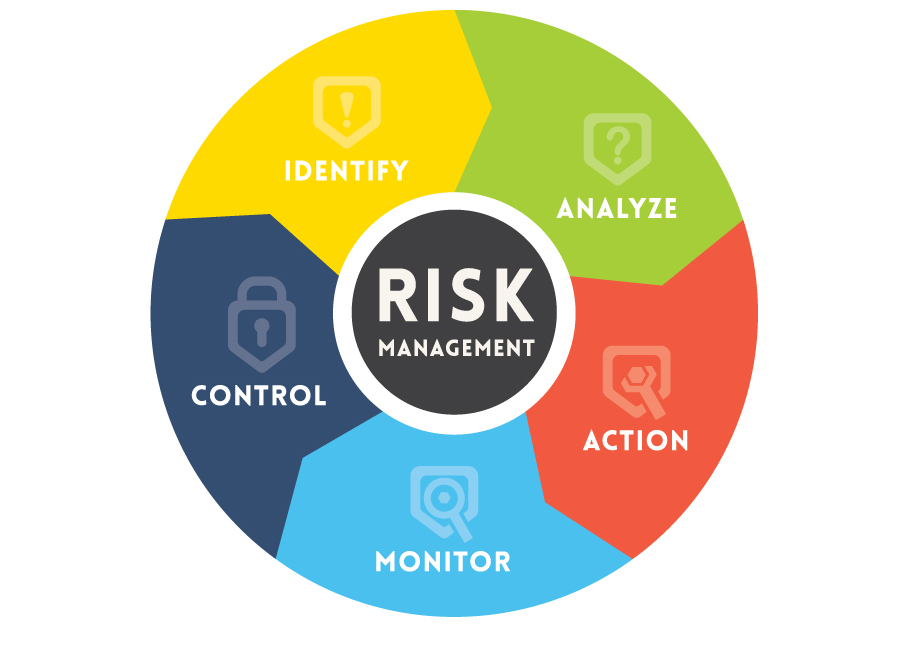AI and Risk Management: Pioneering a New Era in Security
Risk management has assumed a new dimension in today’s rapidly evolving digital landscape. Traditional approaches, once the bedrock of safeguarding assets and reputations, are now being reimagined. The reason is simple: the complexities of the modern world have outgrown the capabilities of manual and often reactive risk management methods. As the pace of data generation quickens and digital threats grow increasingly sophisticated, the need for a more efficient and proactive approach becomes abundantly clear.
This is where Artificial Intelligence (AI) takes center stage. With its ability to analyze vast datasets in real time, detect anomalies, and provide predictive insights, AI heralds a new era in risk management. This blog aims to dissect the role of AI, decipher its implications, and shed light on its potential to shape a more secure and insightful future.
Understanding Risk Management and The Limitations of Traditional Risk Management
Risk management identifies potential risks, analyzes their impact, and takes steps to mitigate or avoid them. It’s an essential discipline for businesses, governments, and individuals, as it helps protect assets, reputation, and overall well-being. Traditional methods have been manual and often reactive. They rely heavily on historical data, making them less effective in dealing with new, unforeseen threats. These methods are time-consuming, lack scalability, and are prone to human biases.

AI’s Transformative Role in Risk Management
Introducing Artificial Intelligence (AI) into risk management represents a transformative paradigm shift, revolutionizing how organizations perceive and respond to potential threats. AI’s impact can be dissected into several vital facets that collectively redefine the discipline of risk management:
1. Predictive Analytics: AI excels at predictive modeling. By learning from historical data, it can anticipate potential risks and their implications. This predictive capability enables organizations to proactively address issues before they escalate into significant problems.
2. Automation and Scalability: AI-driven management is characterized by automation. It can continuously monitor data streams, making it well-suited for environments with high data volumes and velocity. This scalability ensures that risk remains effective even in dynamic, fast-paced industries.
3. Anomaly Detection: AI employs algorithms and machine learning techniques to identify unusual patterns or behaviors. In the context of risk management, this translates to the early detection of irregularities that may indicate a security breach, fraud, or other potential issues.
4. Reducing Human Bias: Cognitive biases can influence human decision-making. AI, on the other hand, operates based on data and algorithms, reducing the impact of human bias. This results in more objective risk assessments.
5. Proactive Risk Mitigation: One of AI’s most significant contributions is its ability to recommend proactive measures to mitigate risks. This proactive stance significantly reduces the chances of risks materializing into full-fledged issues.
Auxin’s AlphaID and Risk Mitigation
In risk management, safeguarding sensitive data and maintaining robust identity security are paramount. This is precisely where Auxin’s AlphaID steps in as a powerful ally. AlphaID, an identity security platform, leverages advanced AI and security technologies to fortify risk management strategies. Integrating with your existing systems ensures that identities are verified, authenticated, and monitored in real time, reducing the likelihood of unauthorized access and data breaches. The best part? AlphaID is not just a game-changer; it’s also accessible to all. It’s free to start, so you can experience firsthand how this cutting-edge platform elevates your risk management practices. Sign up and explore the future of identity security in risk management.
Wrapping Up
In my view, integrating Artificial Intelligence into risk management marks an exhilarating era of progress. The potential is astounding, as AI leverages data and automation to predict and identify risks and offer insights that can guide well-informed decisions. This dynamic shift from a reactive approach to a proactive stance is precisely what our increasingly complex and data-driven world requires.
AI doesn’t replace human expertise; it enhances it, minimizing human bias and augmenting decision-making capabilities. As we navigate the digital landscape’s ever-changing terrain, AI stands as a stalwart ally, fortifying our defenses and ushering in an era of risk management that is anticipatory, responsive, and, ultimately, more effective. It’s a revolutionary leap forward in the ongoing quest to protect assets, reputations, and well-being in the face of evolving and often unpredictable threats.






